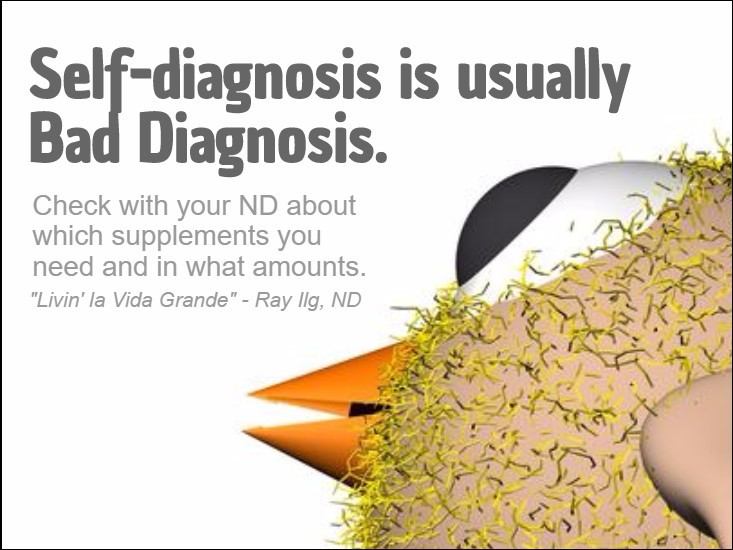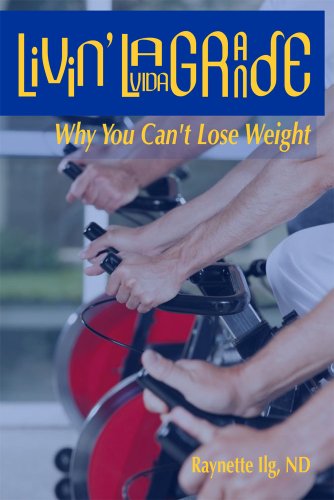Last month, we talked about Hashimoto’s disease as a possible underlying cause of your thyroid troubles. Hashimoto’s disease is an autoimmune disorder where your body attacks and destroys your own thyroid tissue. It is perhaps the leading cause of thyroid disease, but most people don’t even know they have it. In fact, some estimates say that up to 10% of the population in the U.S., and the prevalence increases with age.
One reason Hashimoto’s is often undiagnosed, is that doctors routinely test for levels of T3 and T4 thyroid levels in patients with thyroid disorders, but they can neglect to test for thyroid antibodies – the red flag for Hashimoto’s. What’s dangerous about neglecting a thyroid antibody test is that the doctor may prescribe thyroid replacement hormones (synthetic or natural) and the patient may feel great as a result. But even though they are now getting their thyroid hormone from a pill, the additional hormone replacement does nothing to stop the autoimmune process (although it’s still important to take thyroid medication when prescribed, as it can help heal and regulate other critical body functions). Hashimoto’s disease, now masked even further, continues to ravage the thyroid silently.
That’s why the sooner we get a correct diagnosis and resolve the autoimmune triggers for a patient’s Hashimoto’s Disease (any every person’s triggers are different), we can save the thyroid and perhaps allow it to heal and restore itself.
Some symptoms that make me suspect a patient may have Hashimoto’s include:
- Sudden hyperthyroid symptoms (overactive thyroid). As thyroid cells are destroyed by Hashimoto’s they can release an overabundance of thyroid hormone. This can be very deceptive, as the loss of thyroid tissue is then followed by a gradual decline in thyroid function leading to hypothyroid (underactive thyroid) symptoms.
- Hypo or hyperthyroid symptoms that come and go in response to, or are concurrent with food allergies and sensitivities.
- Other “leaky gut” symptoms such as GERD, immune system overload, inflammation, nutrient deficiencies
There is good reason to get checked if you suspect Hashimoto’s disease. Why? Because the sooner you get an accurate diagnosis and stop your autoimmune triggers, the more healthy thyroid tissue is preserved. Research shows that if there is enough healthy thyroid tissue remaining, the gland can regenerate and heal and restore itself over time. There is also good reason not to “self-diagnose” or self-medicate with Hashimoto’s as sometimes conventional advice for thyroid health can backfire on Hashimoto’s patients (for example, in Hashimoto’s Disease, supplementing with iodine can be one of the worst things you can do).
Come in and talk, so we can see if your symptoms or thyroid issues are being caused by an autoimmune reaction. There is so much we can do to get you feeling better right away!
Explore bringing Dr. Ray to your workplace!
she’s a dynamic speaker on today’s top health trends. Human resource directors love her! She can bring your employer or employees cost-effective natural health options that save money and increase workplace productivity!
This Month's Vita-Mini: Vitamin O?
You may or may not have seen an expensive health supplement called “vitamin O.” It’s not clear that this is really a vitamin, nor if there are proven health benefits. But what the supplement claims to deliver, and a substance you really do need is OXYGEN.
You won’t get oxygen itself from a pill or supplement. However, you can increase the oxygen supply in your blood by eating right, getting the right nutrients from food or supplements that increase and support your oxygen delivery system. The most important way to improve your oxygen level is by getting regular exercise that increases the circulation of red blood cells throughout your body to oxygen-starved cells.
Another habit to cultivate is deeper breathing for better oxygenation. Whenever you feel tired or stressed, stop for a minute and watch your breath. Chances are you are breathing very little or breathing in and out from the top of your chest. Whenever you notice this, take the time to retrain yourself to take full, deep breaths, in and out, from your abdomen. This will use your complete lung capacity and refuel your red blood cells with critical oxygen. It will also reduce stress, as deep breathing is associated with a relaxation response, while shallow breathing is often part of the stressful “fight or flight” mechanism.







